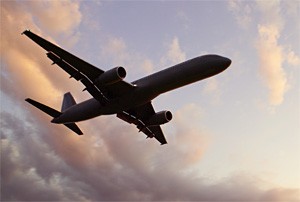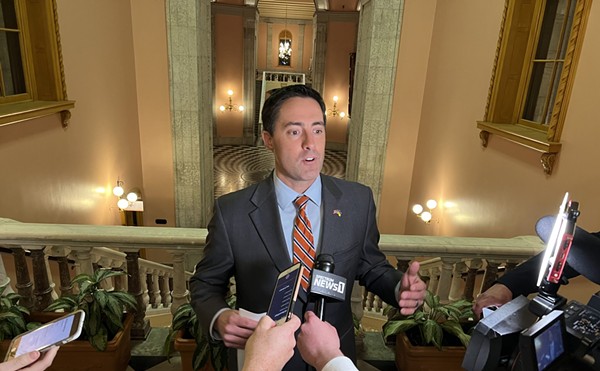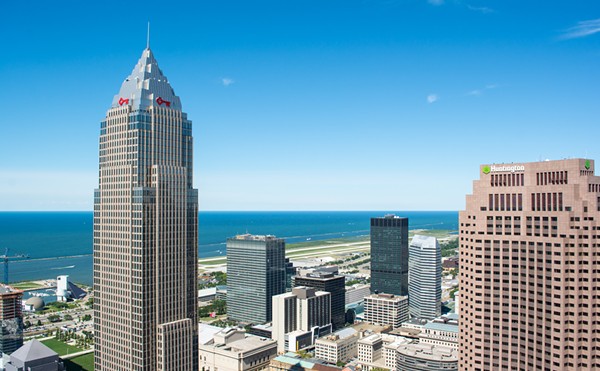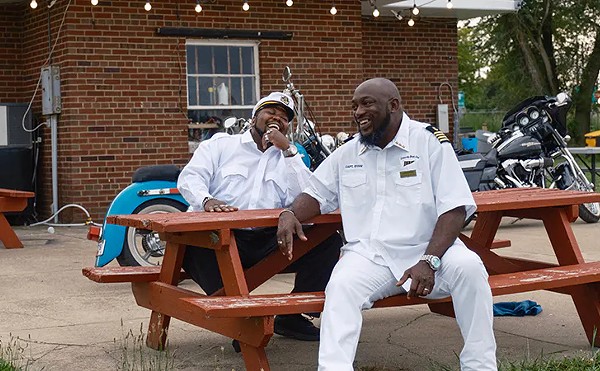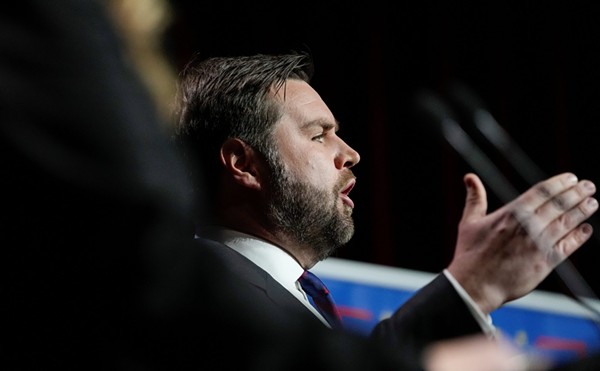In 2006, just two weeks into his new job, Hopkins Airport Director Ricky Smith made what he thought was a routine decision: He raised airport parking by a buck.
The change brought the price back to where it was in 2002. And since it wasn't something Smith needed to get approved — he was the boss, after all — he didn't bother running it past city council.
So began his introduction to civic life in Cleveland.
Where many might see a simple step toward financial prudence, members of city council saw a new hotshot director undercutting their authority. They took their complaints straight to The Plain Dealer.
"The papers read something like 'Airport Director Defies Council,'" says Smith. "It was frustrating."
Cleveland's airport once led the nation in aviation innovation. In 1930, it installed the first airfield lighting system, the first ground-to-air radio control, and the first air-traffic control tower. But over time, it's become a dumping ground for political appointees. And during Mike White's reign, it was a corruption outpost, with $1.4 billion in expansions largely being doled out to contractors willing to grease the mayor's bagman, Nate Gray.
"The historical perspective is, that airport has been a cash cow," says Councilman Michael Polensek. "It's a place we've seen corruption."
Now, while it serves the nation's 25th-largest metropolitan area, Hopkins ranks as its 35th-busiest airport — and it's got fierce competition. Akron-Canton Airport continues to siphon off travelers, and just last week announced a $110 million expansion.
Smith was an unlikely pick to stave off the scrappy competitor. While Cleveland rarely recruits proven talent from out of town, Smith grew up in Baltimore, among the same drug dealers and gangbangers immortalized by The Wire. He was first in his family to graduate from college, getting a business degree from Howard. After a failed bid to buy a nightclub, Smith picked up a job as a budget manager with the Maryland Aviation Administration, which runs BWI airport in Baltimore.
"I had three ulcers in my first year on the job," he says. "I was working nonstop."
The work paid off for BWI: In the late '80s, after USAir closed its Baltimore hub, Smith helped the airport land an up-and-coming airline: Southwest. BWI soon became one of the world's fastest-growing commercial airports.
"He was thought well of by the employees," says Suzette Moore, a BWI director. "Some still hope he'll come back."
By 2006, Smith had scraped his way to second-in-command at BWI. But when the top job opened, he got passed over. So when Cleveland came knocking, offering $208,000 a year and top-dog status, he jumped. "I guess I wanted a challenge," he says. "Cleveland is known in the industry as a place where directors don't survive."
Judging from the headlines in his first several months, it was unclear whether he himself would survive.
After raising parking rates, Smith took on one of the airport's most dire problems: taxi service. He'd heard the horror stories: drivers dropping passengers on the side of the road, different cabs charging different rates for a ride downtown. A few taxis even lacked meters altogether.
"What is happening at Hopkins is not a joke; it's a disaster," says Brian McBride, who runs Yellow Cab Company. "Ricky came in and immediately tried to clean it up."
In the early fall of 2006, Smith asked cab companies to submit bids to become the airport's prime carrier. He hoped to create a single carrier to operate a fleet of 75 taxis, each fitted with GPS and painted with an airport logo.
A plan that funneled cab drivers' most lucrative business to a single company was sure to be controversial. And it was: Smith, learning his lesson from the parking-rate incident, asked city council for its approval. But they rejected the plan.
Smith redrew the plan to include the city's three major taxi companies: ACE, Yellow Cab, and Americab. But four smaller companies sued, demanding they be let back into Hopkins. And a federal judge sided with the cabs. Now, more than a year after Smith set out to fix cab service, a new fleet of cabs sits idle in parking lots while a federal appeals court reviews the case.
"You think you go through an open and competitive process, and a credible selection — you'd think that's okay," says Smith. "But apparently, it doesn't work that way. I'm not used to an environment where you're criticized for following the process."
Jo Ellen McNamara, a former airport liaison to council who left abruptly after Smith's arrival, sees it differently: "Sometimes he thinks he owns the airport. He doesn't care what the laws are. Ricky just wants to do what Ricky wants to do."
But even when he wants to do what his bosses want him to, Smith finds himself a target. Last summer, with the city's murder rate blasting toward record levels, Mayor Jackson asked Smith to explore moving 45 police officers assigned to the airport onto city streets. Although offering a secure airport seems paramount to attracting business, Smith agreed to make it happen. That month, he announced a plan to replace the cops with a private security firm, allowing the Cleveland officers to be redeployed.
Smith went straight to city council with the proposal. And council, hungry to show the public they were committed to fortifying neighborhoods, approved the plan.
But in following the mayor's lead, Smith had stepped into a long-simmering battle between City Hall and Cleveland's police union.
"Ricky Smith is an absolute imbecile," Steve Loomis, president of the Cleveland Patrolmen's Union, says. "He's treating the airport as a business and is not concerned about the safety."
The union sued the city, arguing that airport security needs full arrest powers — a notion City Hall and Smith had apparently neglected to consider. A judge backed Loomis' claim and killed the city's plan. Months later, the city is still searching for a way to redeploy the airport officers.
"The ultimate plan in a few months is to have a dedicated airport police force," says Smith. "I think we can make this happen without compromising the safety and security of passengers."
Taxis, security — Smith's entire workload since arriving in Cleveland remains in limbo, waiting for approval from some arm of bureaucracy. And no wait is more ulcer-inducing than the case of the missing property taxes.
Back in 2006, Smith says, he ordered a thorough sweep of his new workplace. And what he discovered floored him: HMS Host, the company that runs the airport concessions, hadn't paid its property taxes for almost 20 years. But it wasn't the government that was owed. The city had footed $5.4 million in taxes on the company's behalf. It's now fighting to recoup the money — but it won't be easy. HMS's lawyers are going line by line over the charges, dedicated to making sure the company won't turn over a penny it doesn't have to. "I couldn't believe it," says Smith. "And I found this out about six months after I was into the job."
Last month, Smith finally devised a plan that just might stick. He jettisoned HMS for BAA, a company that operates airport concessions in Boston, Pittsburgh, and Baltimore. The new company will bring a mall-like feel to the airport in April. Smith predicts sales will double.
"BAA will help the airport move forward," Smith says — and, he hopes, will help prove what he's been saying since he arrived: "I don't have a hidden agenda. I just want to leave things better off than when I arrived."

